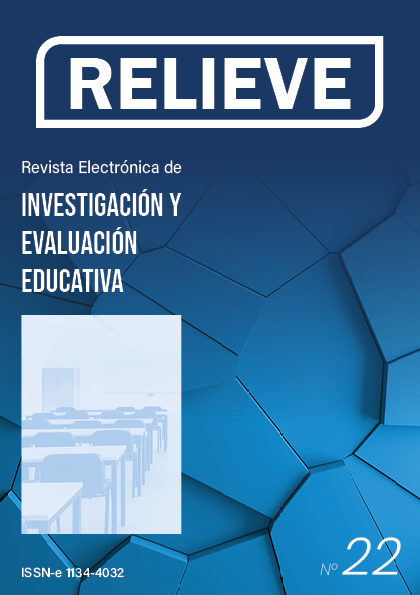Background questionnaires of PISA: a study of the assessment indicators
DOI:
https://doi.org/10.7203/relieve.22.1.8274Keywords:
PISA, background questionnaires, evaluation indicators, evaluation of educational systems, education, measurement.Abstract
The PISA assessment system has generated and continues to generate intense debate about its structure and usefulness. This article focuses on the context questionnaires as a way to analyze and understand the results properly. The objectives are to analyze the context indicators used in the different editions of the PISA tests, used in different studies and the results of these studies. An overview of the model used is provided to ensure that these indicators are no longer something that accompanies the performance test to reach their true meaning: jointly analyze the performance along with the variables that may be influencing the results. As methodology is used document analysis of publications related to PISA and results, as well as a semantic analysis of scientific work that has generated PISA. The results show that some indicators have remained throughout the various editions of PISA, while others have changed. The translation of a stable model in editions from PISA 2015 in which the most relevant items are included will undoubtedly facilitate the study of results at vertical and horizontal level. Thus, the importance of PISA context questionnaires established to properly understand their results and the need for more complex studies of multilevel or nested that normally used, generally based on descriptive statistics and / or percentages.
Downloads
Downloads
Published
How to Cite
Issue
Section
License
The authors grant non-exclusive rights of exploitation of works published to RELIEVE and consent to be distributed under the Creative Commons Attribution-Noncommercial Use 4.0 International License (CC-BY-NC 4.0), which allows third parties to use the published material whenever the authorship of the work and the source of publication is mentioned, and it is used for non-commercial purposes.
The authors can reach other additional and independent contractual agreements, for the non-exclusive distribution of the version of the work published in this journal (for example, by including it in an institutional repository or publishing it in a book), as long as it is clearly stated that the Original source of publication is this magazine.
Authors are encouraged to disseminate their work after it has been published, through the internet (for example, in institutional archives online or on its website) which can generate interesting exchanges and increase work appointments.
The fact of sending your paper to RELIEVE implies that you accept these conditions.














